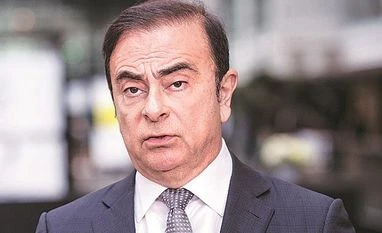Renault's board was meeting on Thursday to appoint new leadership, after Chairman and Chief Executive Carlos Ghosn resigned in the wake of a financial scandal that has rocked the French carmaker and its alliance with Japan's Nissan.
The French government, Renault's biggest shareholder, confirmed the board was being asked to name outgoing Michelin boss Jean-Dominique Senard as chairman and Ghosn's deputy Thierry Bollore as chief executive.
Senard and Bollore "will be presented this morning to the board of directors", government spokesman Benjamin Griveaux said before the meeting began at 0900 GMT.
The widely expected appointments may begin to resolve a Renault-Nissan leadership crisis that erupted after Ghosn's Nov. 19 arrest in Japan and swift dismissal as Nissan chairman.
They also mark a clear end to one of the auto industry's most feted careers, two decades after Ghosn was despatched by former Renault CEO Louis Schweitzer to rescue newly acquired Nissan from near-bankruptcy - a feat he pulled off in two years.
After 14 years as Renault CEO and a decade as chairman, Ghosn formally resigned from both roles on the eve of the board meeting, French Finance Minister Bruno Le Maire said.
More From This Section
Ghosn's arrest and indictment for financial misconduct has strained the Renault-Nissan relationship, threatening the future of the industrial partnership he transformed into a global carmaking giant over two decades.
For two months, the tensions deepened as Renault and the French government stuck by Ghosn despite the revelation he had arranged to be paid tens of millions of dollars in additional income, unbeknownst to shareholders.
Ghosn has been charged with failing to disclose more than $80 million in additional compensation for 2010-18 that he had agreed to be paid later. Nissan director Greg Kelly and the Japanese company itself have also been indicted.
Both men deny the deferred pay was illegal or required disclosure, while not contesting the agreements' existence. Ghosn has denied a separate breach of trust charge over personal investment losses he temporarily transferred to Nissan in 2008.
Ghosn finally agreed in recent days to step down from Renault, Reuters reported on Tuesday - but only after the French government called for leadership change and his bail requests were rejected by the Japanese courts.
Senard, 65, faces the immediate task of soothing relations with Nissan, which is 43.4 per cent-owned by Renault but the larger partner by sales.
Following Ghosn's arrest, Nissan CEO Hiroto Saikawa had sought to weaken Renault's control and resisted its attempts to nominate new directors to the Japanese carmaker's board.
In a possible sign of detente on Thursday, Nissan called an April shareholder meeting to appoint a Renault-nominated board member and formally terminate Ghosn and Kelly's directorships. It remains unclear whether Renault, as Nissan's parent, will also name its next chairman.
Nissan currently owns a 15 per cent non-voting stake in its French parent and 34 per cent in Mitsubishi Motors, a third major partner in their manufacturing alliance.
Once its new management is settled, French officials want the alliance to resume work on a new ownership structure to cement the partnership - which Ghosn had been mandated to explore when his Renault contract was renewed last year.
Nissan is wary of any such move. In an interview last week, Saikawa acknowledged shareholders' concerns that the current structure undervalues their investments, but added that altering it was "really not the current priority".
)